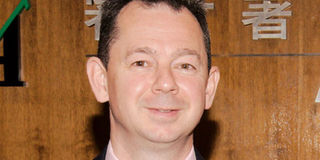‘Accounting standards must be enforced’

Mr Ross Campbell is the director of Public Sector at the Institute of Chartered Accountants in England and Wales.
President Museveni referred to accountants as playing a role in the corrupt tendencies in the government. And on several occasions, accountants appear to have missed spotting the red flags. How does the profession shed such a reputation?
Over years, you need to build a group of high quality professionals who work to adhere to international standards. They would have a set of professional standards they have to adhere to in terms of their competence, diligence, ethical behaviour and a professional body that has ‘teeth’ and enforces. You can have the standards as you like but if they are not enforced, then you don’t get the right behaviours.
My sense often is where accountants are seen as the problem, then there is a need to invest in the profession and making sure that the professionals you have are working at high quality standards. That sometimes takes a little bit of time. I would encourage Uganda to invest in a strong profession that can be accountable and make good decisions. As ever, walk the talk.
Compared to the previous Budget (2016/17), how different or similar is the 2017/18 Budget?
We have a professional body in Uganda that does the kind of professional growth and supervision of public accountants. What do you think they could do better in the Ugandan context?
I think that is a good beginning. The body here is quite young and still growing. I don’t think they have many members yet but I think as they grow and develop, they will adhere to international best practices. The trajectory is a positive one and as time passes, I hope it will grow and become a stronger force. We work with chartered accountants worldwide to share standards and best practices.
The profession being accused of colluding may also at some point be far-fetched. For instance, the Office of the Auditor General (OAG) may identify several loopholes or fraud in public finances. It submits these findings to Parliament but by the time the reports are discussed, it is already after a two-year period. Is the accountant still to blame?
Audits of necessity happen after the event. The trick is to build both the capacity in terms of numbers and capability to do it quickly. Again, it is the question of developing the capacity of the professional. There also needs to be something of a political drive to invest a little effort and time in strengthening the capability to shorten timescales and doing things in a standardised way.
The other thing that can’t be ignored is helping the politicians understand the outcomes and what the numbers mean because sometimes, that can be neglected. Even in the UK, that can be neglected. Very few of our politicians are accountants, so we as accountants have a duty to educate them so that they can better understand what we are telling them. It is all about practice, experience and investment in training. Several jurisdictions are looking at several types of audits like the Value for Money Audit (VFM), looking at whether money has been spent on the right things.
We have the VFMs in Uganda but the accountants or the audit reports mean nothing if the findings are not acted on by another entity within the government.
Indeed. This is a whole system and a bit back to the “strategic bottlenecks” often mentioned by the President of Uganda. Sometimes if you improve one bit of the system, then another bit becomes the constraint. Then, you’d have to tackle that.
Taking a look at the future of Uganda’s public finance; we are only starting to implement Public-Private Partnerships (under a law that is three years old). The regulations came out last year. There are several projects lined up under this arrangement. What is the role of the accountant in infrastructure financing?
Very often, the role of accountants is to understand how to structure the agreement such that the risk is minimised and economic returns are appropriate for the risk. This is such that the government doesn’t pay too much and investors can invest in a way that allows them to price efficiently. Accountants are involved in building the estimates and project model especially around what the project should cost.
As the project commences, there is a role for accountants in ensuring good cost control for the procurement activity and ensuring that estimates made are matching with the actual cost. At the end, there is a role for accountants to determine whether there were lessons learned and whether the outturn was what was planned for at the start.
The accountant might give a scenario where a project is a non-starter with projections showing it would be a ‘white elephant.’ However, the political class wants this project implemented. What does the accountant do in this case?
Policymakers make policy and accountants with an understanding of the numbers deliver that policy. Sometimes as a public servant, you give your advice to politicians and they don’t take it. They will be held accountable through other means because they are answerable to the public.
The duty of the accountant is to ensure that the politician understands the ramifications of the decisions and in a strong system of governance, where the accounts are published; it means people can see what was pointed out and the consequences. Accountants can do some things but we also live in a system where the politicians have the final control.



